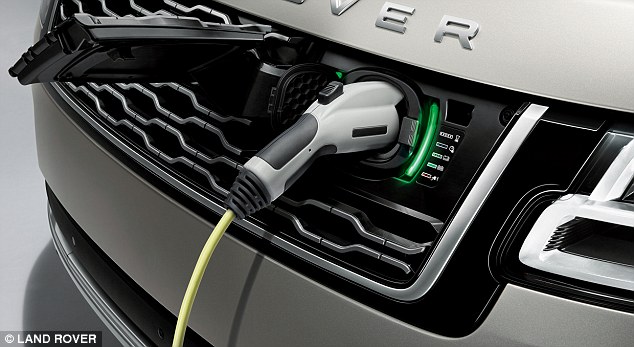
JLR has develops new portable Battery Energy Storage System (BESS)
London, 16 April 2024, (Oilandgaspress): – JLR has partnered with energy storage start-up, Allye Energy, to create a novel Battery Energy Storage System (BESS) to provide zero emissions power on the go. A single Allye MAX BESS holds seven second-life Range Rover and Range Rover Sport PHEV battery packs that are simply removed from the vehicles and slotted into customised racks, without unnecessary additional processing. Each BESS can store 270kWh of energy at full capacity, enough to power the average UK household for nearly a month*.
The BESS, which is the first to use JLR’s second life Range Rover batteries, can charge up to nine Range Rover PHEVs at any one time, and is designed to be easily charged by simply plugging it into any CCS-capable Vehicle Charger using the same input as JLR’s existing PHEV and BEV product portfolio. In addition, multi-input connectivity via powerlock connections enable it to be connected to renewable power at fixed or off-grid sites.
The MAX BESS can be used to replace diesel generators, historically relied on by the automotive industry, to power off-grid vehicle launches, events and vehicle tests in remote areas. JLR’s Engineering team are the first to utilise the new BESS, providing zero emissions power during testing of the new Range Rover Electric, due to launch later this year.
The average Diesel generator would typically use 16L of fuel per hour, equivalent to a daily total of 129.12kg of CO2 for three hours’ usage***. JLR’s Engineering team will use the BESS to power over 1000 hours of testing, saving more than 15,494kg of CO2 during the course of a year – equivalent to one passenger taking seven round-trip flights from London to New York.
The versatile BESS weighs less than 3.5 tonnes, allowing it to be fully portable or stationary, to provide energy storage for retailers or JLR sites. This would help JLR’s network of over 3000 retailers better leverage renewable energy such as solar and act as energy buffers to support fast charging where the local grid connection may be restricted. The unit will also be commercially available for use outside of JLR.
As part of its Reimagine strategy, JLR is investing £15bn into electrification by building a comprehensive EV ecosystem. This includes considering the full lifecycle of EV batteries, one of the new circular business models JLR is exploring in energy storage and beyond.
One example of how the BESS is being used practically in the development of Range Rover Electric is through the Engineering team’s prolonged endurance testing at remote off-road sites where only low power connections are available which would only enable a slow charge. The engineers can top up the BESS from a low power supply during testing and then transfer the power to the Range Rover Electric via fast charging from the BESS, much more quickly than directly charging the vehicle from the supply. Working in this way allows the testing to be completed in a much quicker time frame than would normally be possible.
Battery value chains are predicted to grow 30 percent annually from 2022 to 2030, to reach a value of more than $400 billion. Second-life battery supply for stationary applications is predicted to exceed 200 gigawatt-hours per year by 2030, creating a global value over $30 billion****.
Engineered to the highest standards, JLR’s batteries can be safely deployed in low-energy situations once their health falls below electric vehicle requirements, which typically leaves a 70-80% residual capacity. Following these second-life use cases, JLR will recycle the batteries so that raw materials can be recovered for re-use as part of a true circular economy.
Information Source: Read full article
Oil and gas press covers, Energy Monitor, Climate, Renewable, Wind, Biomass, Sustainability, Oil Price, LPG, Solar, Marine, Aviation, Fuel, Hydrogen, Electric ,EV, Gas,

